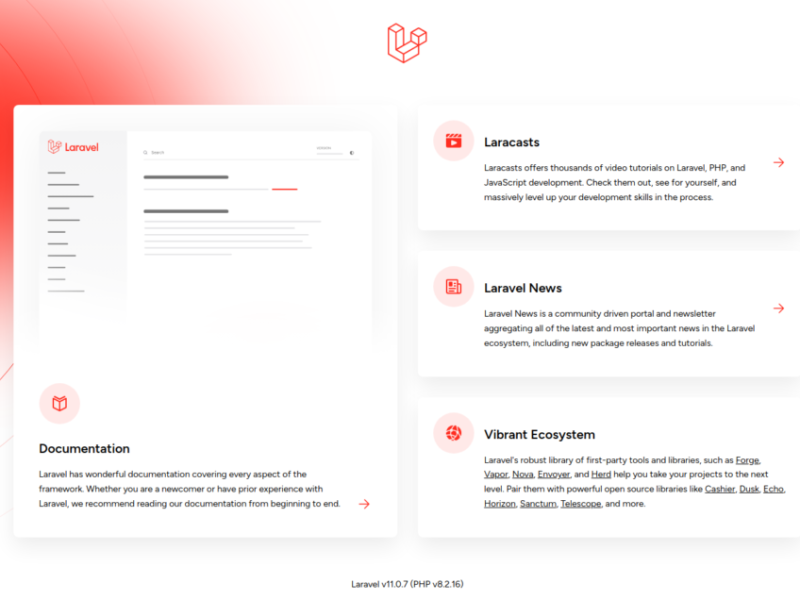
In the dynamic world of web development, the choice of hosting can significantly affect application performance and scalability. Shared hosting, especially those using cPanel, is a popular option, but how well does it fit Laravel applications? Laravel, a powerful PHP framework, is known for its elegance and sophisticated features. This article explores the pros and cons of using shared hosting for Laravel projects to guide developers in making an informed hosting decision.
Shared Hosting Overview
Shared hosting involves multiple websites residing on a single server, sharing resources such as disk space, memory, and processing power. This type of hosting is often managed through user-friendly platforms such as cPanel, which simplify website and server management. This gives you an affordable option that is easy to use.
Benefits of using shared hosting for Laravel applications
Cost effectiveness
Shared hosting is an economical choice, especially for small-scale projects or startups. Its low price points make it affordable for developers on a budget.
Easy to use and manage
With intuitive interfaces, especially in cPanel, shared hosting requires less technical expertise to set up and manage. This ease of use is a significant advantage for beginners or those who prefer a hands-on approach.
Pre-configured environment
Most shared hosting services come with basic services and pre-installed software. This configuration reduces the complexity of server configuration, offering a direct path to deployment.
Built-in cPanel features
cPanel offers a variety of tools for website management, including options to automate backups, email setup, and domain management, which are especially useful for maintaining Laravel applications.
Limitations and challenges of shared hosting for Laravel
performance issues
Shared hosting provides limited resources, which can cause performance bottlenecks, especially for resource-intensive applications like those built with Laravel. Additionally, other websites’ traffic and resource usage on the same server can negatively affect your site’s performance.
Security issues
The shared nature of hosting environments can lead to security vulnerabilities. There is also a limitation in implementing advanced security measures due to shared access and control.
Limited customization and control
Shared hosting usually limits server configuration and software installation. This limitation can create challenges in optimizing the server environment specifically for Laravel.
Scalability Limitations
As a Laravel application grows, the need for more resources becomes critical. Shared hosting often struggles with dynamic scaling, potentially requiring migration to more scalable solutions such as VPS or dedicated hosting.
Best practices for running Laravel on shared hosting
To maximize the benefits of shared hosting for Laravel, consider the following:
- Optimizing Laravel performance: Implementation of caching and optimization of database queries to reduce the load on server resources.
- Strengthening security: Regularly update your Laravel dependencies and use the security plugins available in cPanel.
- Monitoring the use of resources: Keep an eye on your application’s resource usage to avoid over-utilization and plan when scaling or migration is needed.
Power your Laravel applications with our specialized Laravel hosting. Get faster speeds for your Laravel apps and websites with NVMe storage, server protection, dedicated resources, and optimization tools.
99.99% uptime
Free SSL
Dedicated IP address
Developer Tools
Laravel Hosting
conclusion
With its cost-effectiveness and ease of management, shared hosting can be a viable option for Laravel applications, especially for small-scale or early-stage projects. However, performance, security, customization, and scalability limitations must be carefully considered. Evaluate the specific needs of your project against the capabilities and limitations of shared hosting to make a well-informed decision. As your application grows, be prepared to review your hosting choices to ensure they can still meet your evolving needs.



